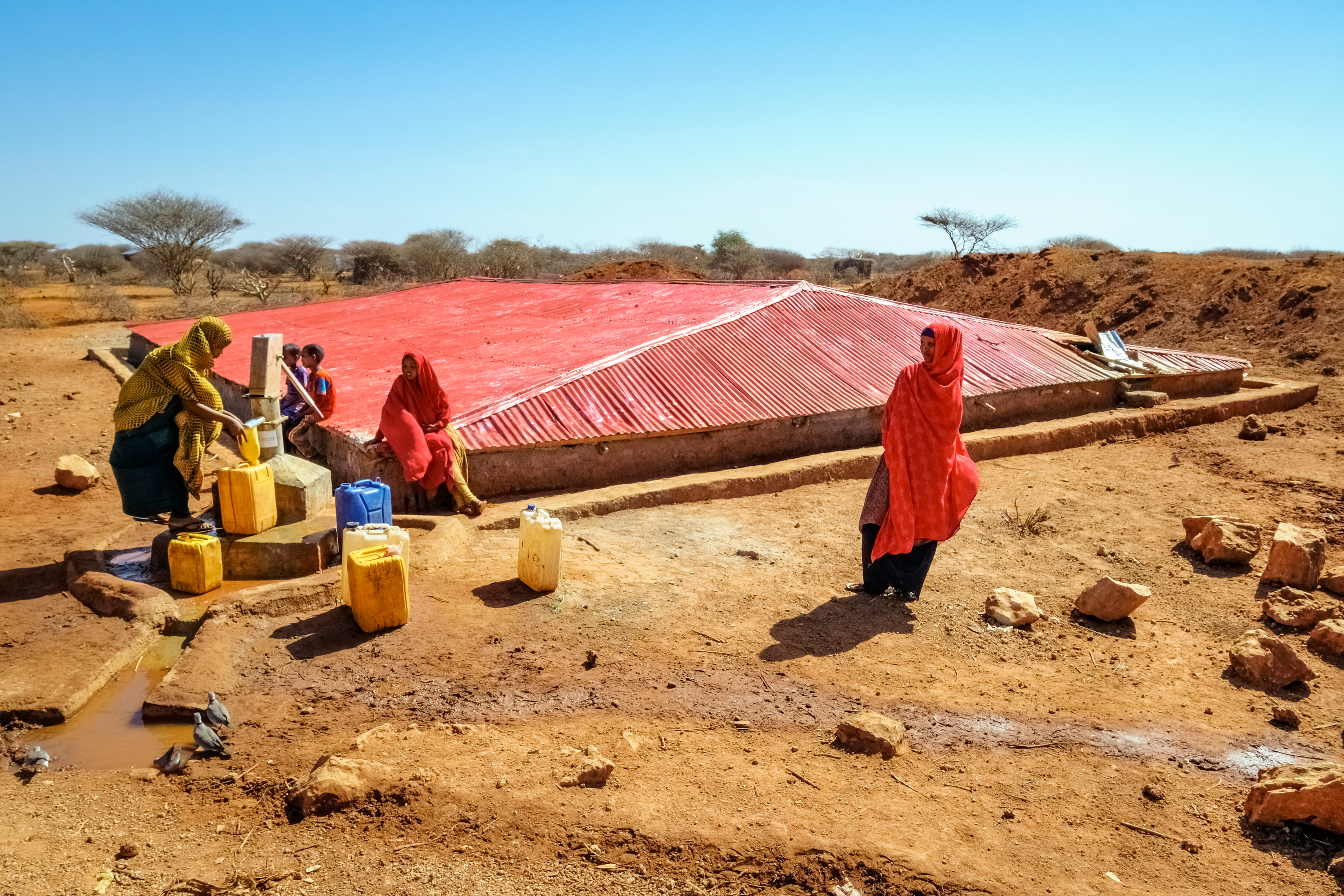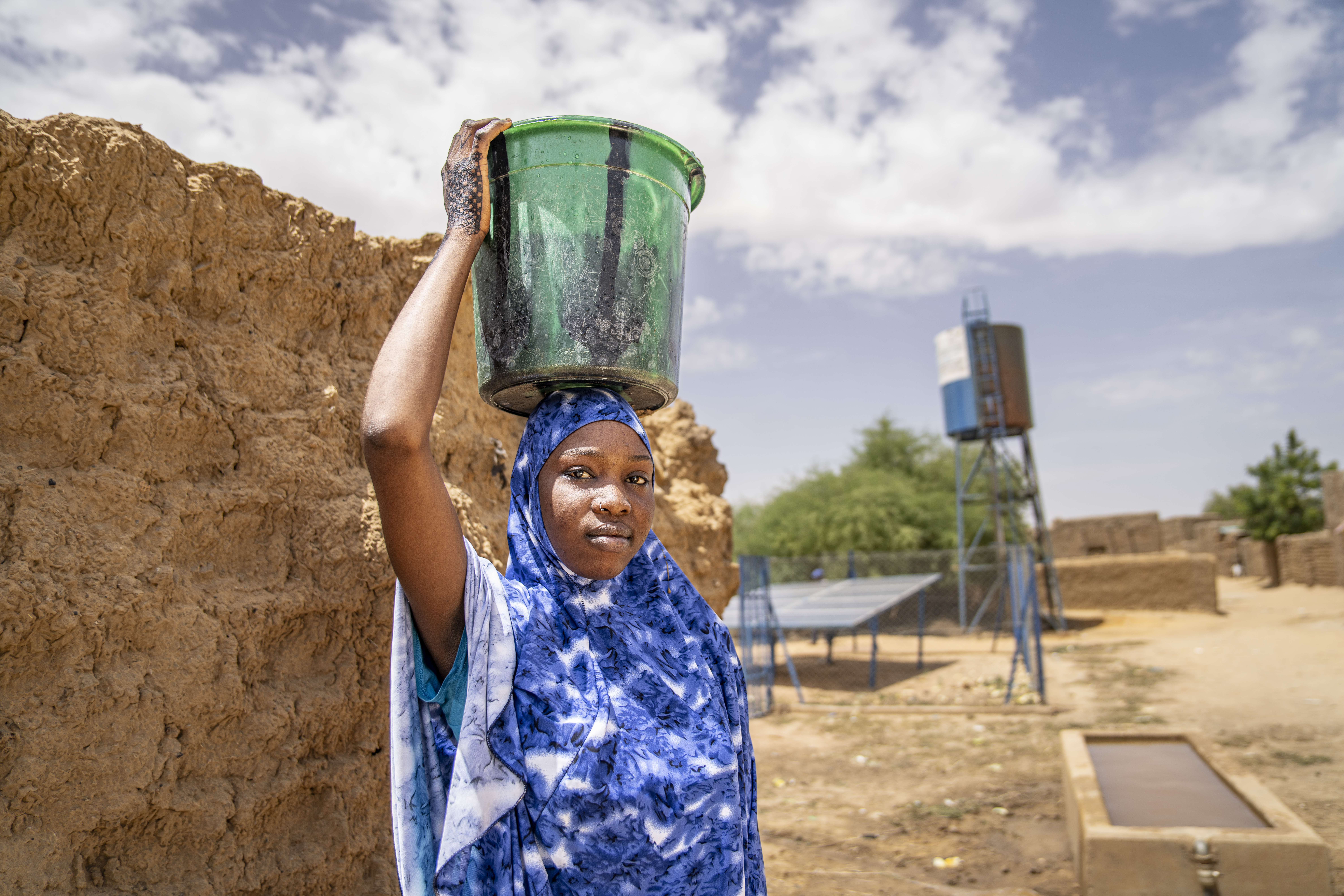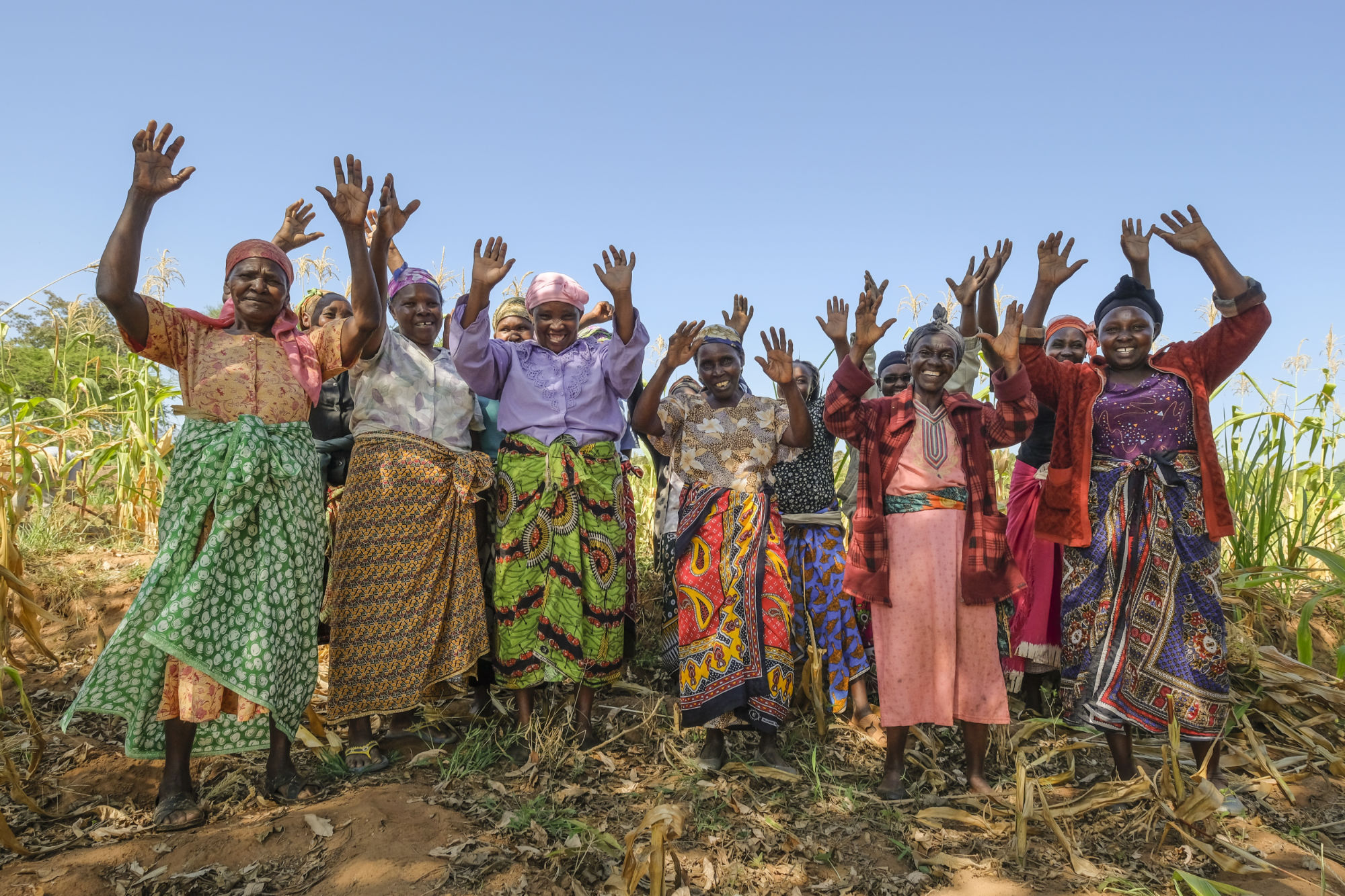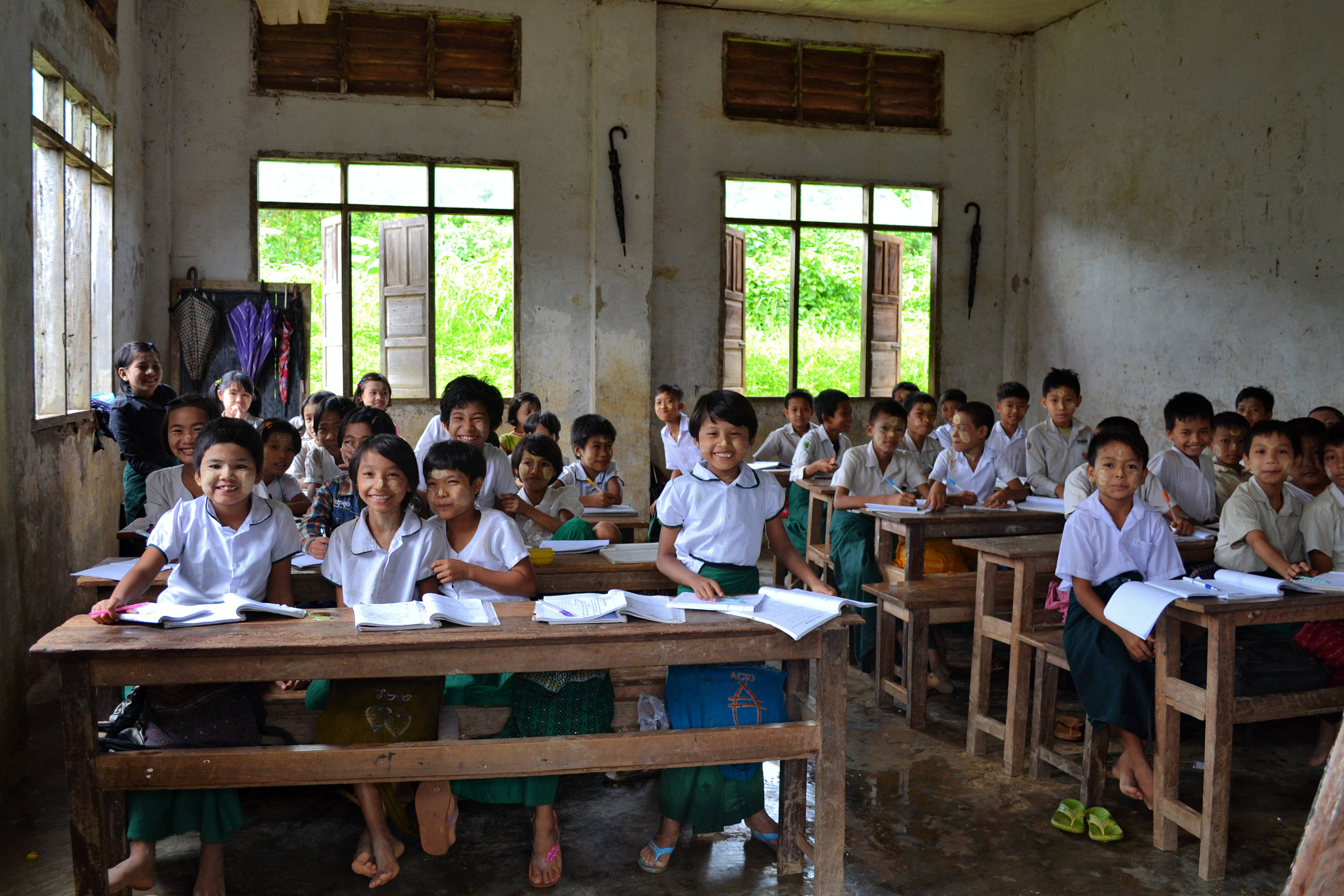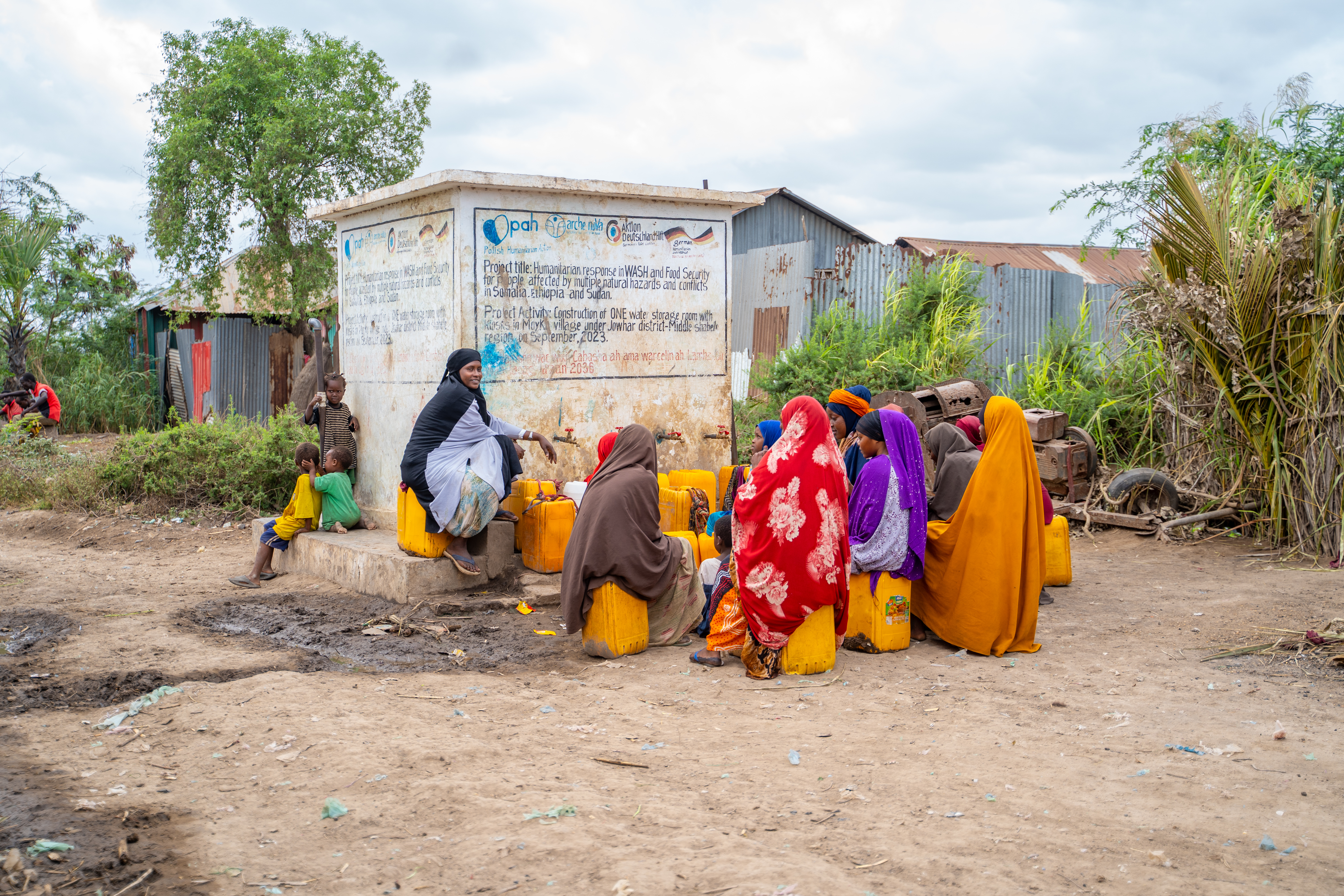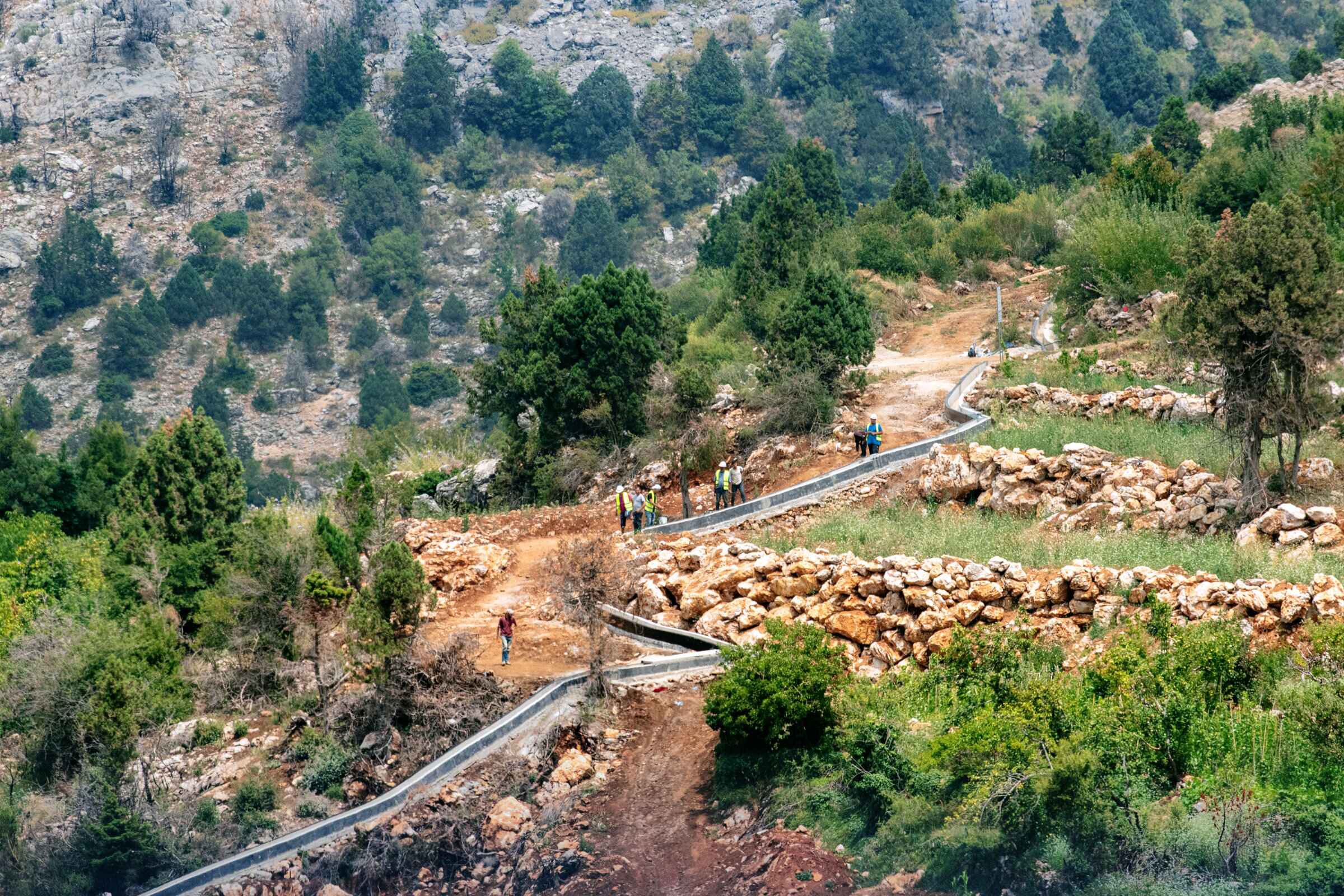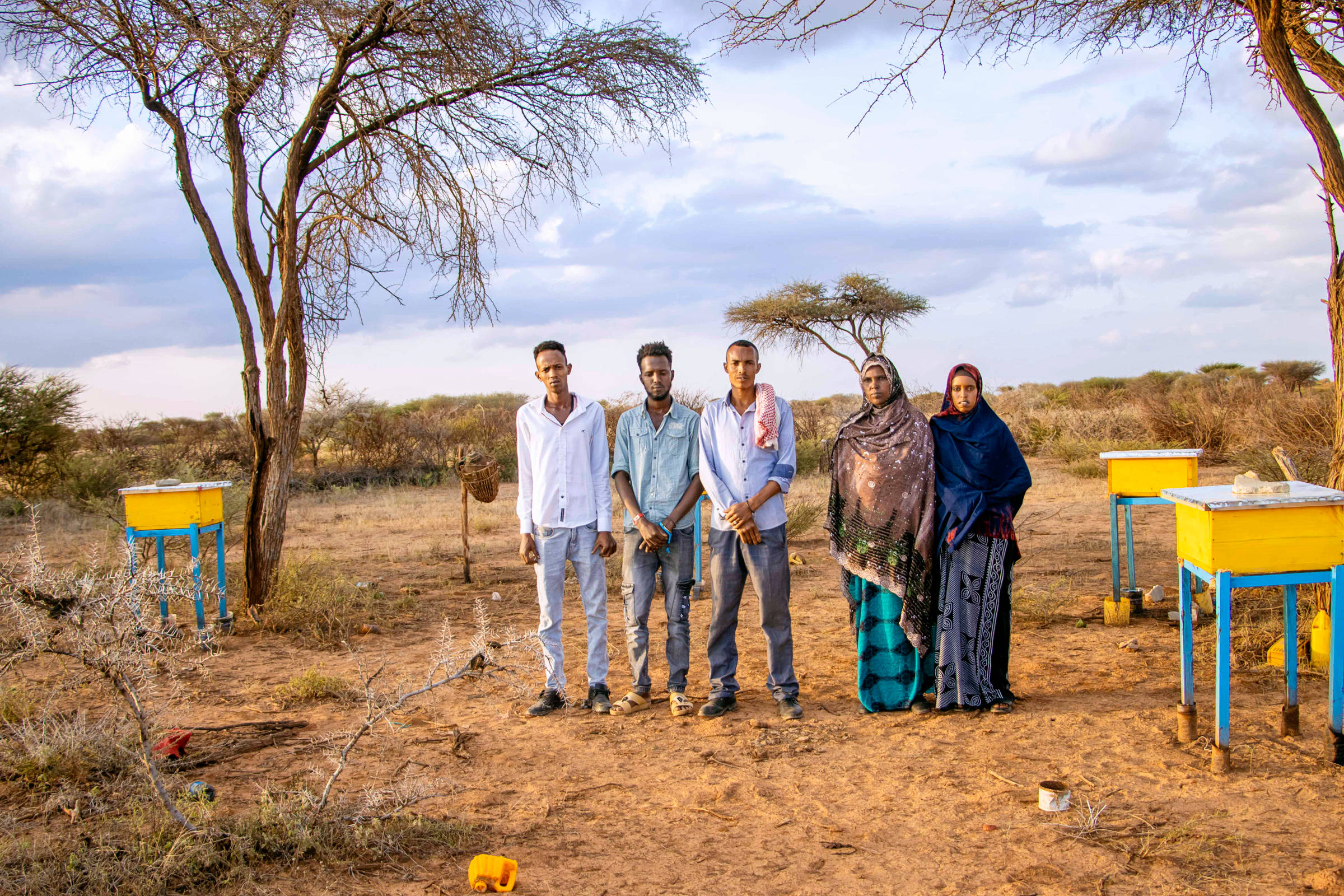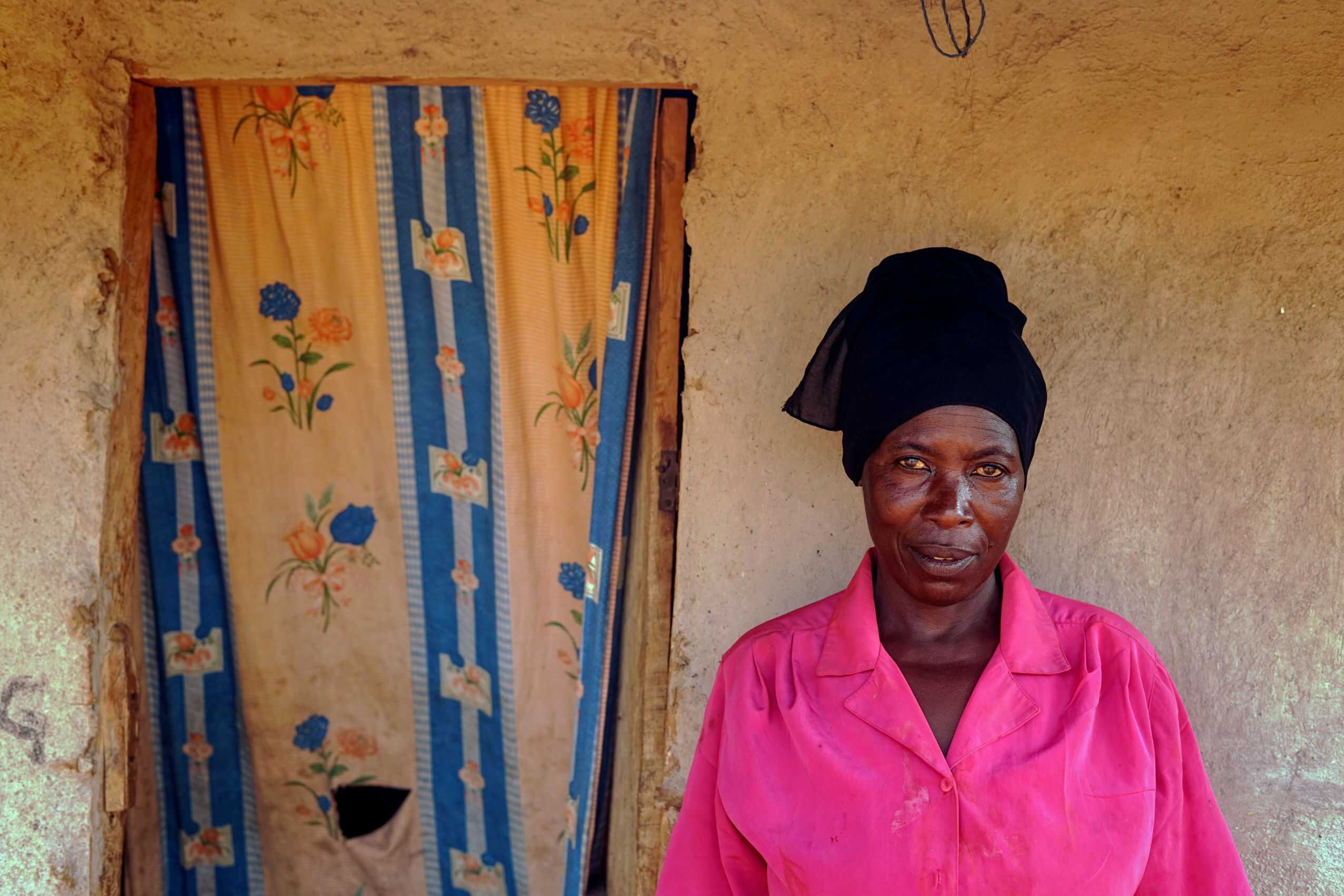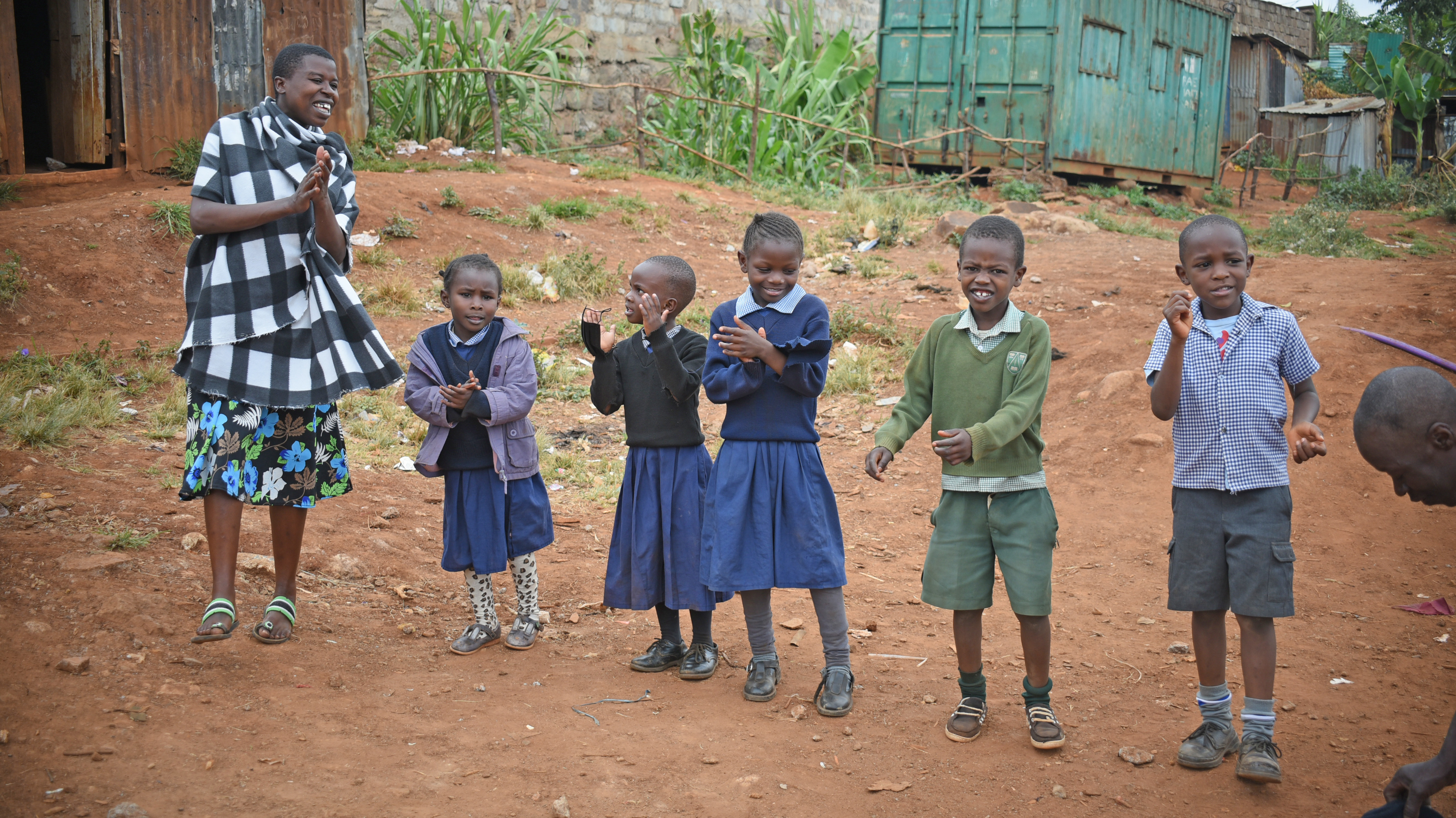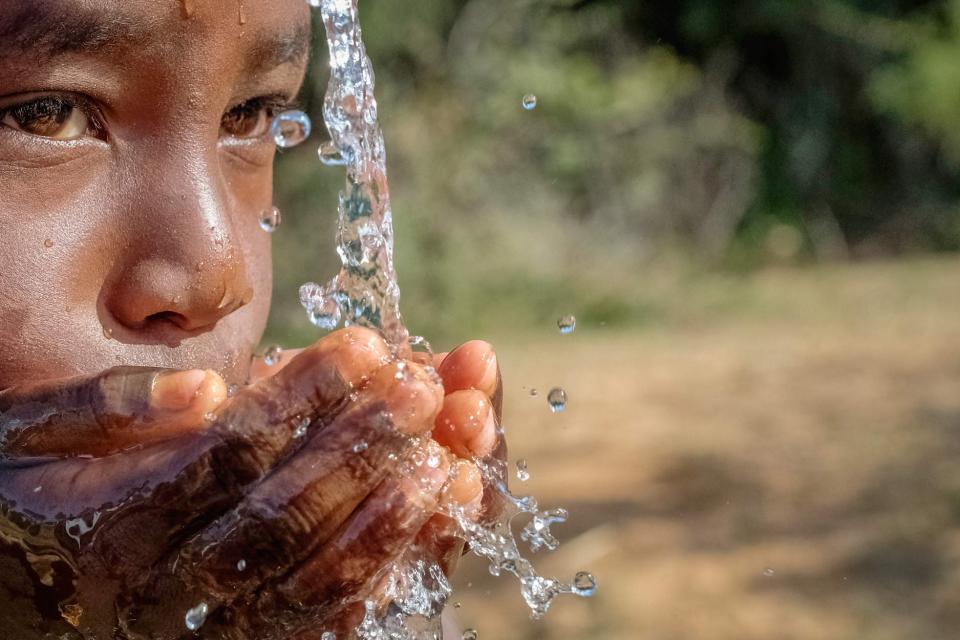
Water is essential for life
Water projects are one of the most efficient ways to improve the living conditions of people. Access to water is the beginning. It changes everything:
Water, sanitation and hygiene - a triad that belongs together
For every human being WASH is an existential question. Because only those who have access to drinking water, sanitation and good hygiene practices are protected from health hazards. The video shows why this is so important and how arche nova is ensuring WASH.
Yes, I want to provide water!
With your donation you enable water projects all over the world and help the local people to a better quality of life.
Water - an existential question
844 million people worldwide lack access to clean drinking water. Every day they live with the risk of falling ill because the water they have to use is contaminated. Every day, 4,000 children die from diseases caused by poor water quality and lack of sanitation. That is more children than are killed in all violent conflicts, including war.
Particularly in sub-Saharan Africa, millions of women and children walk for miles every day just to fetch water. They have no other choice because fetching water is essential for survival. Due to the long distances and long queues at water points or pumps, the women and children lose billions of hours and the chance to take care of other things, such as school, training or employment. It is even more difficult for old and sick people who suffer disproportionately from poor water supply.
.jpeg)
.jpg)
-
Water facts worldwide
Human RightSince 2010, access to clean water and sanitation has been a human right recognised by the UN General Assembly and the UN Human Rights Council.
.jpeg)
-
Water facts worldwide
Poor hygiene conditions4,000 children die every day from diseases caused by contaminated water and poor hygiene conditions, mainly diarrhoeal diseases.
.jpeg)
-
Water facts worldwide
Water AccessDespite recognition as a human right, 844 million people lack a basic drinking water supply.
.jpeg)
-
Water facts worldwide
Healthcare facilitiesWorldwide, 26% of health care facilities, such as hospitals and health stations, lack an improved water source.
.jpeg)
-
Water facts worldwide
Water access in schoolsOne fifth of all schools do not have an adequate drinking water supply.
.jpg)
Water Crisis
Inadequate access to water mainly affects countries of the global South, especially sub-Saharan Africa. Here, as in other parts of the world, people in rural areas are usually worse off than the urban population. Even more decisive for the existential question of the quality of water supply is the financial background of the people. High-income households hardly ever suffer, while poor people suffer disproportionately often from inadequate water systems.
But even where functioning structures exist, people are disadvantaged on the basis of their gender, age, state of health, status, ethnic origin or religious identity. Compared to the majority of the society, they find it particularly difficult to obtain sufficient water regularly.
Worldwide, we observe local water crises worsening as a result of climate change. Experts estimate that by 2025 half of humanity will be threatened by water shortages. At the same time, the demand for water is increasing year by year. This is mainly caused by industry and industrial agriculture as well as consumption and population growth.
However, it is not only the sheer volume of water demand that is a problem and results in the fact that in some places there is simply not enough water available for everyone. In many places it is precisely the poor water quality that threatens people. There is a lack of wastewater treatment worldwide. At the same time, more and more contaminants, including pesticides, fertilizers and residues of medicines, are entering the water cycle.
.jpeg)
.jpg)
.jpg)
WASH at the international agenda
More commitment to the human right to water is urgently needed. This involves, among other things, restricting water abstraction in endangered areas, resource-saving production of goods and commodities, a fairer distribution of the limited water resources and investments in locally adapted water supply systems.
.jpg)
WASH focus of arche nova
Whether in remote communities, after natural disasters or in crisis areas: arche nova enables people worldwide to access clean drinking water.
The water projects of arche nova are as different as the needs and conditions on site. Natural springs are bordered, wells are drilled and rainwater is collected and treated.
Our projects range from acute emergency aid, in which people are supplied with drinking water for example from tank lorries, to sustainable development cooperation.
.jpeg)
How arche nova uses the Skyhydrant in emergency aid
Ultrafiltration is one of the simplest methods for quickly bringing water up to drinking quality. It provides effective protection against bacteria and some viruses. That is why arche nova relies on these systems, such as the Skyhydrant, in its humanitarian aid work. In this video, we explain exactly how it works and why it is so practical in emergency aid situations.
How we address Water, Sanitation & Hygiene
In order to achieve a positive change for and with the people affected, however, it is not enough to "only" provide access to water. Only by linking it to the issues of sanitation and hygiene can projects be sustainable and effective. Water, sanitation and hygiene - WASH for short - are a triad that works together.
The lack of sanitation is an essential issue, which affects people in extreme poverty in particular. Wherever people are forced to relieve themselves outdoors, they are not only poorly supplied, but also endanger their drinking water supply and their health. Comprehensive WASH projects therefore include sanitation solutions and hygiene promotion. This involves more than latrine construction and soap distribution. WASH projects only become sustainable with a change in behaviour. Our approach aims to activate personal responsibility.
.jpg)
.jpg)
Get involved!
Your donation brings clean water to people in need.
.jpg)
"In the old days, the watering hole was full of danger. When it rained hard, the border softened or collapsed completely. Once I slipped and fell in. Besides, the water often made us sick. In our family and in the whole village especially the children often had typhoid and diarrhoea. Now it looks completely different: Since the new well with a hand pump has been installed, people from Ttabe get sick much less often. Everyone goes to school regularly and learns much better.We can even drink the water right here at the well without having to boil it first, it is so clean."
– Teddy Kateme, from Ttaba, Mukono District, UgandaWASH is a joint task
Given the dimension of the task, arche nova works closely with other NGOs and international institutions. WASH is a joint task. We are a member of all relevant networks and are committed to the further networking of international and local organisations. arche nova actively promotes the training and exchange of WASH experts worldwide.
Learn more about WASH here!
In our media library we have collected many more articles about WASH for you. Learn more now


